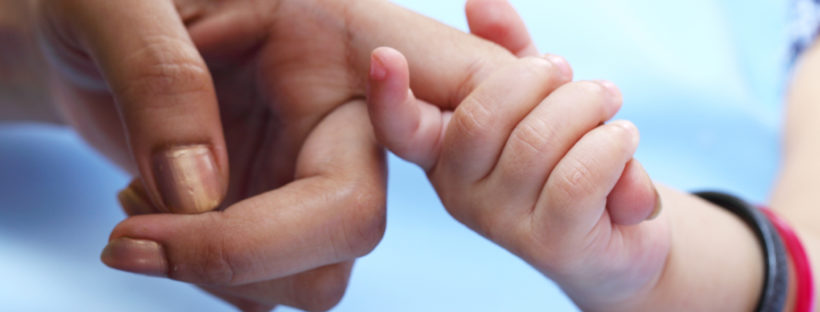by, Leslie Hsu Oh
You’ll be fine. Don’t be selfish. This was Mā Ma’s last words to me. Even though she hadn’t been able to eat anything for days and liver cancer caused by hepatitis B had coated the insides of her abdominal cavity, I still didn’t believe it was possible that I could lose her. A year earlier, she had been diagnosed with liver cancer a week after my eighteen-year-old brother died of the same disease.
Dropping my college textbooks, I grabbed her hand and said, “I won’t be fine. Today is your wedding anniversary. In a few weeks, I turn twenty-one. There’s no way that God would take both you and Jon-Jon.”
No matter what I said, her eyes remained closed against the crisp white hospital pillow. Desperate, I said the most hurtful thing I thought I could say, “If you die, I won’t get married. I won’t have kids without you.”
Her eyes fluttered. I knew the words upset her because she once told me that becoming a mother was the best thing that ever happened in her life. An hour later, a chocolate brown bubble escaped from her mouth and she was gone.
For years, I thought that Oath was meant to punish Mā Ma for leaving me. But when I finally realized it was because I was afraid hepatitis B would claim another person I loved, I understood that I was only hurting myself.
My two daughters (11 and 3) are as feisty as my mother and my son (8) dotes upon me the way I thought only my brother could. They are free of hepatitis B because nurses like those of you who belong to AWHONN worked with me to ensure that all my kids were given the hepatitis B vaccine at birth, even though I am not chronically infected with hepatitis B. This is something that parents need to request. I’ve spent the last 19 years since founding The Hepatitis B Initiative educating parents about how they can protect their children from hepatitis B.
Today, The Hepatitis B Initiative operates in several states preventing liver diseases caused by hepatitis B and C among Asian Americans and Pacific Islanders, African Americans and other high-risk groups. We have served Chinese, Vietnamese, Korean, Cambodian, Laotian, Thai, Filipino, Nigerian, Ethiopian, Cameroon, Sierra Leone, Indian, Pakistani, Egyptians, Sudan, Syrian, Afghanistan, Bangladesh, Indonesian, Ghanaian, Moroccan, Saudi Arabian, Brazilian, Nepalese, Burmese, Salvadorian, Guatemalan, Ecuadorian, Sri Lankan, Mexican, El Salvadorian, and Honduran communities who are not accessing health care due to a lack of affordable treatment options, employment in industries which expose workers to hepatitis (such as nail salons, health care work, etc.), language barriers, and a lack of culturally competent care.
Because we bring services directly to places where the community gathers (51 events held in 2015) like mosques, schools, churches, temples, health fairs, ESL classes, clients are willing to share the reasons why they have never heard about or been screened or vaccinated for hepatitis B.
Hepatitis B is an easily preventable disease and yet it kills 2 people every minute. In the United States, 1 in 10 Asian Americans is chronically infected with hepatitis B. It is one of the greatest health disparities.
First, most who are infected feel perfectly healthy. As many as 75% of the Americans living with hepatitis B or C do not know they are infected.
Second, even though like my family’s situation, most Asian Americans contract hepatitis B from mother to child during birth, there is a stigma that it is a sexually transmitted disease and therefore most people living with hepatitis B choose to remain silent about their condition.
- They are worried that they will lose their jobs or ruin their chance of finding a partner.
- Immigrants believe they will be deported since hepatitis B is a reportable disease.
- Many believe that it’s better not to know whether they have hepatitis B or liver cancer or cirrhosis.
- Or worse no one ever told them that hepatitis B was a serious disease.
Third, many cultures enforce silence. I’ve been told all my life not to talk about the bad stuff. Pretend everything is fine. Save face.
My mother was a photographer, journalist, and painter. She taught me that art could say the things that we are afraid to say, how it could heal long after the life of its creator. With the weight of a camera around our necks, my mother would ask as we waded through white waters or leaped onto the back of a horse: “What story are you trying to tell?” In nearly fifty national parks, my aesthetic developed in the natural world, places woven with indigenous knowledge, bled in streambeds, trapped in rock layers, eroded in the earth.
While The Hepatitis B Initiative has had a life-saving impact, I realized that the transformative power of art does more. People tell me that my story saves lives. That’s why I’m working on a memoir which I hope will inspire others to find their voice. That perhaps together we can end the silence and stigma cloaking hepatitis B and other diseases.
On October 15, 2016, the Hepatitis B Initiative will be throwing a Gala at the Willard Hotel in Washington, D.C. to celebrate 10 years as a nonprofit. For more information, please visit hbi-dc.org or contact janepan@hbi-dc.org.
Losing her mother and brother to hepatitis B at the age of twenty-one inspired her to found the Hepatitis B Initiative in 1997, which she later expanded to the Maryland, Virginia, and Washington, D.C. area with Thomas Oh. Today, this award-winning nonprofit continues to operate in several states mobilizing communities to prevent liver diseases caused by hepatitis B and C among Asian Americans and Pacific Islanders, African Americans and other high-risk groups.
Leslie Hsu Oh
lhsu@post.harvard.edu
www.lesliehsuoh.com

